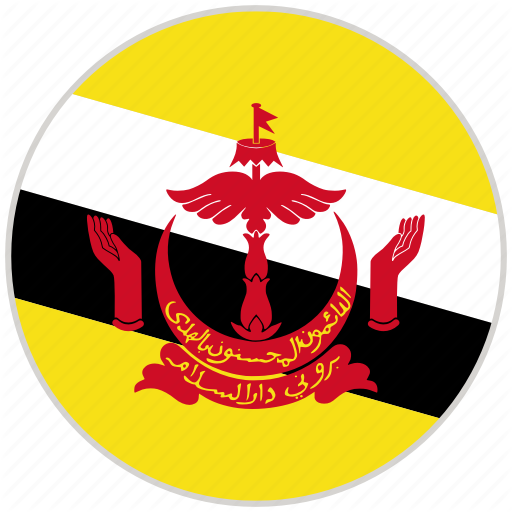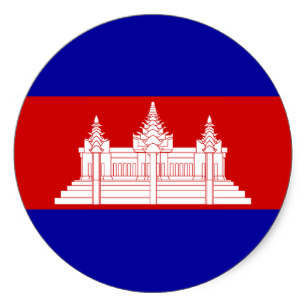- Annex 7: Crisis Management in the ASEAN Plus Three Countries
- Annex 8: The Road Towards the East Asia Economic Community (EAEC) 2020
- Annex 9: Enhancement of Regional Health in East Asia with Special Reference to the Public Health and Universal Health Coverage
- Annex 10: Institutional Sustainability of NEAT Towards the East Asian Community
Crisis Management in the ASEAN Plus Three Countries
Somkiat Kamolpun, Ed.D.
Office of the Higher Education Commission
Chadarat Singhadechakul
Office of the Higher Education Commission
Chadarat Singhadechakul
Office of the Higher Education Commission
1. Rationale
Enhanced cooperation and interaction among the ASEAN Plus Three countries significantly fosters political, economic, and social development in each individual country and the region as a whole. Nevertheless, new challenges have emerged and without proper management, they have become crises, for instance, natural disaster, migration and human rights, and epidemic. According to the Nay Pyi Taw Declaration on the ASEAN Community’s Post-2015 Vision, crisis management is an immediate and cross-cutting issue in the three pillars of ASEAN Community. The Declaration urges member states and dialogue partners, including ASEAN Plus Three and ASEAN Plus Six, to develop more dynamic and robust regional mechanism to address challenging issues. Because of globalization and interconnectedness of the global citizens, a number of crises have inevitably affected many countries in the region. ASEAN have policies to deal with a number of crises, but those policies have never been translated into actions. Although each individual member state attempts to mitigate the effects of the crises, the lack of synergy in policy implementation hinders the effectiveness in regional crisis management.
The Post-2015 Vision indicates that natural disaster and climate change are emerging challenges. Along with human rights and economic challenges, natural disaster and climate change increase the number of forced and irregular migration which eventually affects health security in the region. These crises have brought about a number of consequences, for instance, loss of lives and livelihood, homeless and misplaced people, health care burdens, transnational crimes, to name a few. To address these crises effectively, concerted effort among the ASEAN Plus Three countries is needed at the levels of policy makers and academic community.
Hence, Thailand would like to propose the theme of ‘Crisis Management’ for the 24th and 25th Network of East Asia Think Tanks Coordinators Meetings and the 13th NEAT Annual Conference. It consists of three sub-themes: natural disaster and climate change, migration, and health security. The main goal of the meetings and the conference with the theme ‘Crisis Management’ is to support the Post-2015 Vision by initiating dialogues among scholars and providing policy recommendations to the ASEAN Plus Three leaders. The concept papers on respective sub-themes appear in Annex 1, 2, and 3.
For the full text of the report, click here.
Concept Paper of the NEAT Working Group on
"The Road Towards the East Asia Economic Community (EAEC) 2020"
Sponsored by NEAT China, 2016
Background
ASEAN Plus Three (APT) cooperation has made substantial progress over the past 17 years in promoting trade and investment relations between ASEAN and the Plus Three countries, strengthening regional financial safety net such as the Chiang Mai Initiative Multilateralization (CMIM) to maintain financial stability in ASEAN and East Asia, developing efficient and liquid regional bond markets, mitigating the threat of climate change to the agriculture, fisheries and forestry sectors in East Asia, and many other areas of cooperation, including environmental protection, disaster management, disease prevention and control, and cross-cutting issues such as connectivity (encompassing the physical, institutional and people-to-people linkages) and narrowing the development divide.
The idea of the EAEC has originated in the rather long history of APT cooperation. The East Asia Vision Group (EAVG)Ⅰ, which was launched against the backdrop of the 1997 Asian financial crisis and tasked to draw up a vision for mid-to-long term cooperation in East Asia, presented to the APT Summit in 2001 its final report titled “East Asia Community of Peace, Prosperity and Progress”, which laid a solid ground work for the future direction of East Asian regional cooperation.
Taking into account that 2011 marks the 10th anniversary of the EAVGⅠreport and that 2012 marks the 15th anniversary of APT cooperation, the Republic of Korea (ROK) proposed to set up the EAVGⅡat the 13th Ha Noi APT Summit in 2010 to review and assess all cooperation activities implemented/being implemented within the framework of APT, and carefully reflect on the future direction of the APT process and regional cooperation in East Asia. The APT leaders welcomed the proposal of the ROK and agreed to “task relevant officials to implement this initiative.” Then the EAVGII was established and the EAVGII Report, which recommended the realization of an East Asia Economic Community (EAEC) by 2020 as the main pillar of APT vision, was submitted to and adopted at the ATP Commemorative Summit in 2012 in Cambodia.
For the full text of the report, click here.
Draft Concept Paper of the NEAT Working Group on
Enhancement of Regional Health in East Asia with
Special Reference to the Public Health and Universal Health Coverage
Theme
This Working Group aims to clarify the current situation and challenges on issues related to healthcare in East Asia, thereby seeking ways to enhance regional cooperation, with special reference to promotion on a regional basis of public healthcare and the universal health coverage.
Background
In East Asia, as exemplified by the institutionalization of ASEAN+3 (APT) in 1997 and East Asia Summit (EAS) in 2005, regional cooperation and integration have advanced particularly in such areas as economy, finance, education, and disaster prevention, etc. Worthy to note is the burgeoning economic interdependence deriving from the establishment of an intra-regional supply chain in parallel with the rapid economic development. Under the circumstances, the question of how to maintain and promote the health of the people or how to develop cooperation in healthcare appears to be an indispensable agenda for sustainable development in the region, let alone a common issue for humanity at large.
The international society has made efforts for health promotion including improvement of the health condition of pregnant women, prevention of such disease as HIV / AIDS and malaria, etc., as an integral development goal under the framework of the Millennium Development Goals (MDGs) established in 2000. The issue of healthcare has been on the agenda of the summit meetings among major countries, leading to the establishment of the Global Fund in Geneva to fight diseases. These efforts have resulted in many achievements, such as the significant decreases of such disease as malaria and tuberculosis as well as the fatality rate of pregnant women.
For the full text of the report, click here.
Concept Paper
NEAT Working Group on Institutional Sustainability of NEAT
Towards the East Asian Community
March 2016
Theme
Institutional Sustainability of NEAT towards the East Asian Community
Background
The Network of East Asian Think-Thanks (NEAT) has functioned as a pivotal intellectual venue for sharing ideas and promoting mutual understanding towards the East Asian Community since its inception in 2003. Throughout the numerous workshops and meetings organized, NEAT has promoted the academic exchanges and provided intellectual insights for East Asian cooperation. A wide range of issues such as the architecture of community building, enhancement of cultural exchange, energy security cooperation, investment and financial cooperation and so on, has been discussed to yield academic findings and policy recommendations. Such intellectual outputs by NEAT have been reported to the APT Summit to be materialized into actual measures of cooperation. Indeed, NEAT has served the academics joining the tract II diplomacy in the APT process to work together in fertile ways.
However, NEAT may not stand away from the ups and downs of the regionalism in East Asia. The re-surfacing strategic rivalries between the major powers amid the mushrooming regional institutions have become more of hindrance rather than help to building the East Asian community, which NEAT has pursued. It is evident that East Asia is by no means a hermetically sealed entity but a dynamically transforming creature. Since shaping and sharing norms through socialization is often distorted by strategic differences, NEAT has faced the challenge to prove its efficiency in dealing with increasing regional challenges in traditional and non-traditional security issue areas. Under-institutionalization of NEAT inherently would preclude APT from practicing the measures in dealing with regional challenges.
For the full text of the report, click here.
















.png)



.png)




